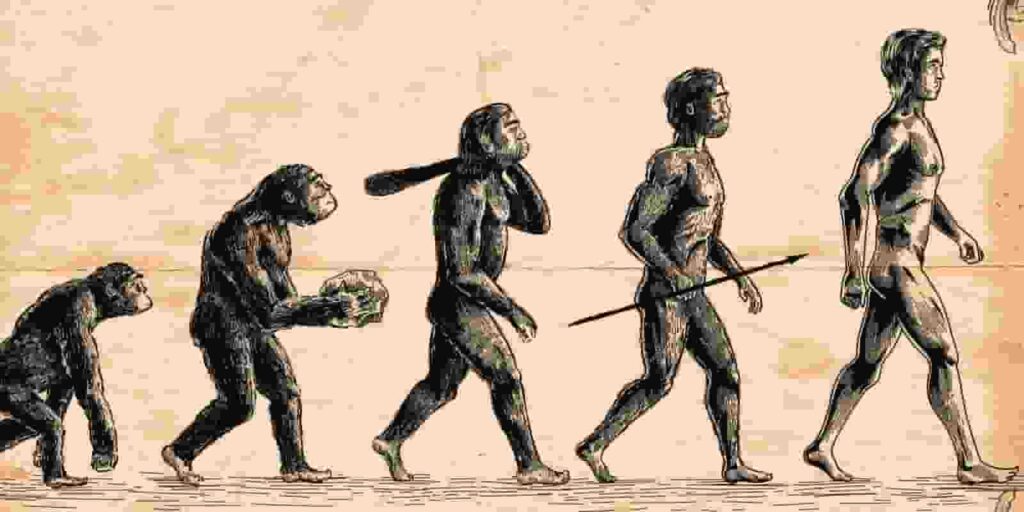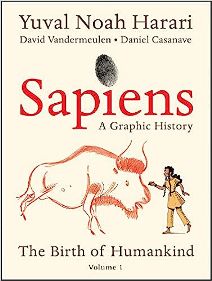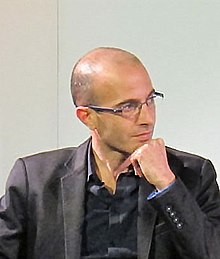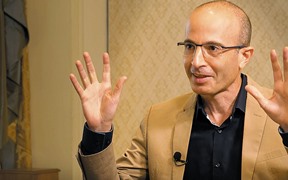Contents
World-wide known historian, philosopher and thinker Yuval Noah Harari‘s first and popular book, “A Brief History of the Human Species from Sapiens & Animals to Gods“, was met with great interest all over the world in a short time. Moreover, it was the first of the best-selling books list in a very long period. We also present the reviews of the author’s other books, “Homo Deus” and “21 Lessons for the 21st Century“. In his book, shortly known as Sapiens, Harari describes the history journey of humanity, our ancestors who emerged in East Africa, starting with Homo Erectus, Neanderthals and other first human species.

First of all, you should know that the first 50 pages of this book may seem a bit boring. On the other hand, if you are patient and manage to get past the first 50 pages, you will start to enjoy the book. In fact, the book becomes more enjoyable as you read the following pages. If you are a patient person enough and want to learn history, religions, and the past of humanity from a different perspective, this book is just for you.
In this point we have to highlihgt that Professor Harari re-questions history and humanity by delving into both the history of humanity and the origins of concepts with his unconventional perspective. We can easily say that; If you read the whole book, this book will give you different perspectives about the world history and humanity.
Cognitive Revolution: How Humans Gained an Edge

According to Yuval Noah Harari, there have been three important revolutions in the history of humanity that are of critical importance. The first and most important of these is the cognitive revolution that took place about 70 thousand years ago, which we still do not know exactly how it started. Thanks to the cognitive revolution period, which brought the human brain to skills such as abstract thinking, learning/using language, communicating and mutual trade, people were able to start to live collectively and form social communities, albeit small.
He, again in his work titled “Sapiens”, states that the source of today’s nation states, social communities and other fictions based on imagination is the cognitive revolution that took place at that time. According to him, societies began to believe in stories and fictions, and abstract concepts such as religion, law and monetary systems due to cognitive revolution.
The Role of Myths and Narratives in Human History
The second important revolution is the agricultural revolution, which took place approximately 12 thousand years ago. Thanks to the agricultural revolution, human beings, who were still living a nomadic lifestyle as hunter-gatherer, started to sow and reap and got into a magnificent order. Before this period, human beings, who had to hunt every day but adopted a lifestyle that could only reach a limited amount of food, increased their food supply with the agricultural revolution. Due to this new lifestyle, human beings also had more time left for activities such as domesticating animals and using fire.
On the other hand, Harari in Sapiens states that he has doubts that the Agricultural Revolution was beneficial to humanity. According to him, human beings are prone to hunting and lost their important characteristics when they passed to permanent settlement. In addition, after the domestication of animals, Humankind started to think that humans were superior to animals and began to be believed that the world was created for them.

Sapiens in Modern Context: Relevance Today
According to Harari, the third most important revolution in human history is the scientific revolution that took place 500-600 years ago. With the scientific revolution, which was based on important geographical discoveries and inventions, people began to seek the solution of diseases and problems with science, not priests and gods. In this period, the authority of the church was shaken and the reputation of the scientific world increased. The scientific revolution, which includes the renaissance, reforms and the birth of capitalism, liberalism and democracy with humanism along with the industrial revolution, continues with the technological revolution today.
Yuval, in Sapiens book harshly criticized these systems, which are actually fictions and abstract concepts. However, he stated that in the current situation, liberal democracy has triumphed over fascism and communism. He says that instead of demolishing the liberal democracy building, restoring this building with some updates and restoring it according to today’s needs would be a better choice for humanity.

In fact, Yuval Noah Harari sought the answer to a basic question that comes to our minds, albeit from time to time, in his 420-pages long “Sapiens: A Brief History of the Human Species from Animals to Gods“. He describes also the development of humanity from its first emergence to the present day from a different perspective in his own unique style. Why are we human beings, the sole and absolute ruler of the world rather than the other living things we have lived with for centuries? In other words, why is humanity, which has a 99 percent DNA match with a chimpanzee, is the ruler and sole authority of the world against other animals and living things?
Why Is Sapiens a Global Bestseller?
Harari‘s answer to this question distinguishes him from other historians, scientists and thinkers. He has a really unique point of view about the answer of that question and according to Harari, we, as homo sapiens, are prone to flexible cooperation even in large numbers, unlike other mammals. While some other creatures are prone to cooperation, they cannot do so flexibly. Other creatures, which are prone to flexible cooperation, cannot do this in large numbers. For example, chimpanzees can cooperate flexibly.

However, when the number of chimpanzees exceeds 15-20, chimpanzees who do not know each other stop cooperation. Harari points out that we humans even though don’t know each other, we could cooperate quite flexibly by forming armies in large numbers and that’s why we control the world.But how? So the question we need to ask here is what enables us sapiens to do so when other creatures cannot cooperate in large numbers and also flexibly? This question is very important in order to understand the book and the beyond of author’s mindset.
Imagination is Important for Humanity!
Harari’s answer to this question of Sapiens book is “OUR IMAGINATION“, which dates back to the cognitive revolution that enabled our brain to develop 70,000 years ago.” In other words, according to Noah Harari, human beings believe in fictional phenomenon such as common stories, myths, religions, money, legal system, nations thanks to their imagination. Moreover, the root reason why they cooperate flexibly for the sake of common value with large numbers is based on our imagination.
According to him, humanity could think abstractly, and in this way, it manages and controls the world by cooperating thanks to its belief in fiction, abstract concepts based on imagination. For him, brands, monetary system, belief system and almost anything with legal personality is fiction. Fiction is not important as realities and human!
Expressing this with the sentence “If it doesn’t hurt, it’s not real,” Harari says, “Does it hurt?” ask yourself that question and if it hurts it’s real, if it doesn’t its fiction. At this point, Yuval Noah Harari questions humanity’s past, world wars and future in a very critical manner. According to him, humanity has made important inventions thanks to its great imagination ability. However, Human beings used these inventions for good things as well as for deadly purposes such as atomic bombs and weapons. According to him, all these goals are to achieve some fictional goals. Finally it is obivous that Noah Harari criticizes humanity for these fictional goals in his Sapiens.
